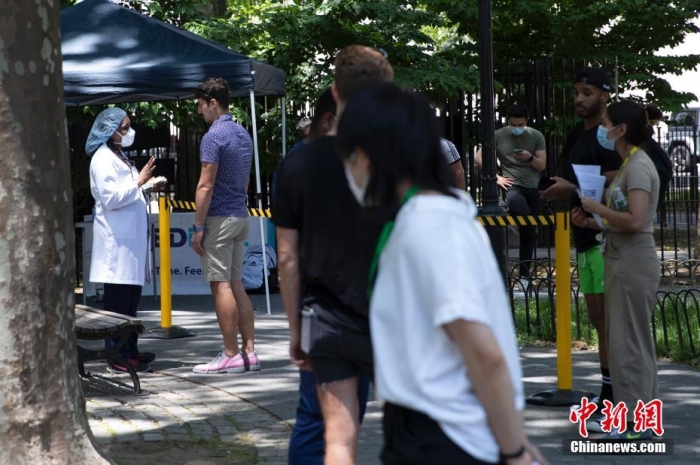China News Service, June 26 (Xinhua) According to Reuters, on the 25th local time, the World Health Organization announced that the monkeypox epidemic has not yet become an international public health emergency.
At the same time, WHO Director-General Tedros Adhanom Ghebreyesus said he was deeply concerned about the outbreak.
On June 24, local time, the New York City government opened a temporary clinic in Manhattan to vaccinate susceptible people against monkeypox.
The picture shows the public consultation on monkeypox vaccination.
Photo by China News Agency reporter Liao Pan
The WHO said in a statement that despite some disagreements within the committee, they ultimately agreed that at this stage, the monkeypox outbreak does not constitute a "public health emergency of international concern".
WHO Director-General Tedros Adhanom Ghebreyesus said in a separate statement, "I am deeply concerned about the monkeypox outbreak, which is clearly an evolving health threat, and my colleagues at the WHO Secretariat are working extremely closely with each other. Watch out for this threat."
More than 3,200 monkeypox cases, including one death, have been reported in nearly 50 non-monkeypox-endemic countries and territories in the past six weeks, according to WHO data.
Monkeypox is a viral zoonotic disease caused by infection with the monkeypox virus.
Monkeypox virus can be transmitted from animals to humans through close contact and through close contact with virus-contaminated materials such as bedding.
The initial symptoms of monkeypox infection in humans include fever, headache, muscle aches, back pain, and swollen lymph nodes, which can later develop into a widespread rash on the face and body.
Most patients recover within a few weeks, but others become seriously ill and may die.
People such as children, pregnant women, and the immunocompromised are at higher risk.

